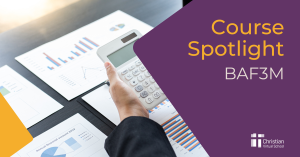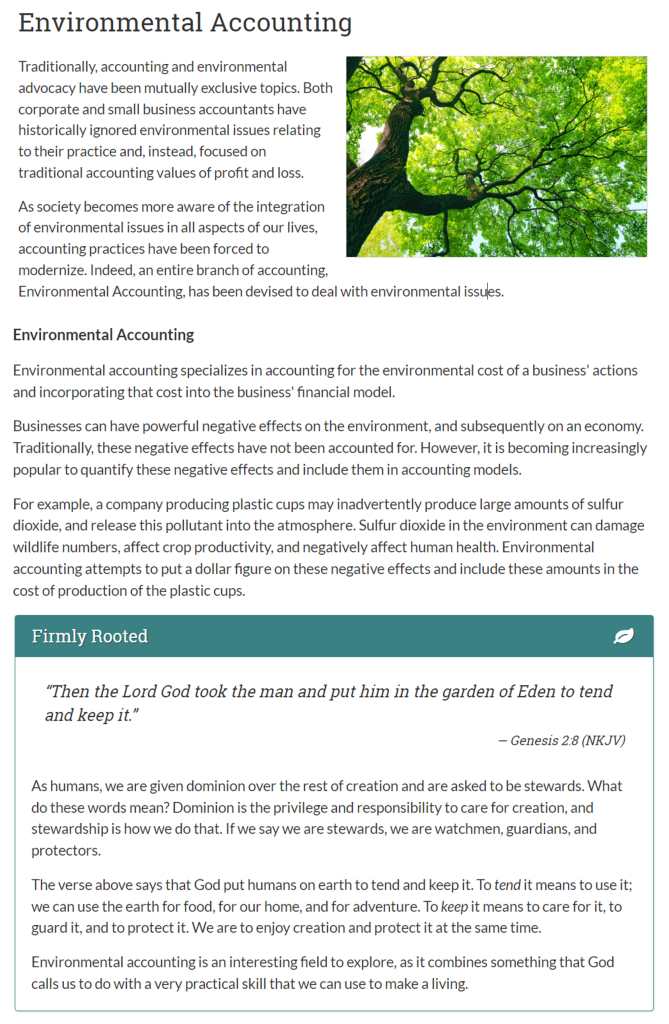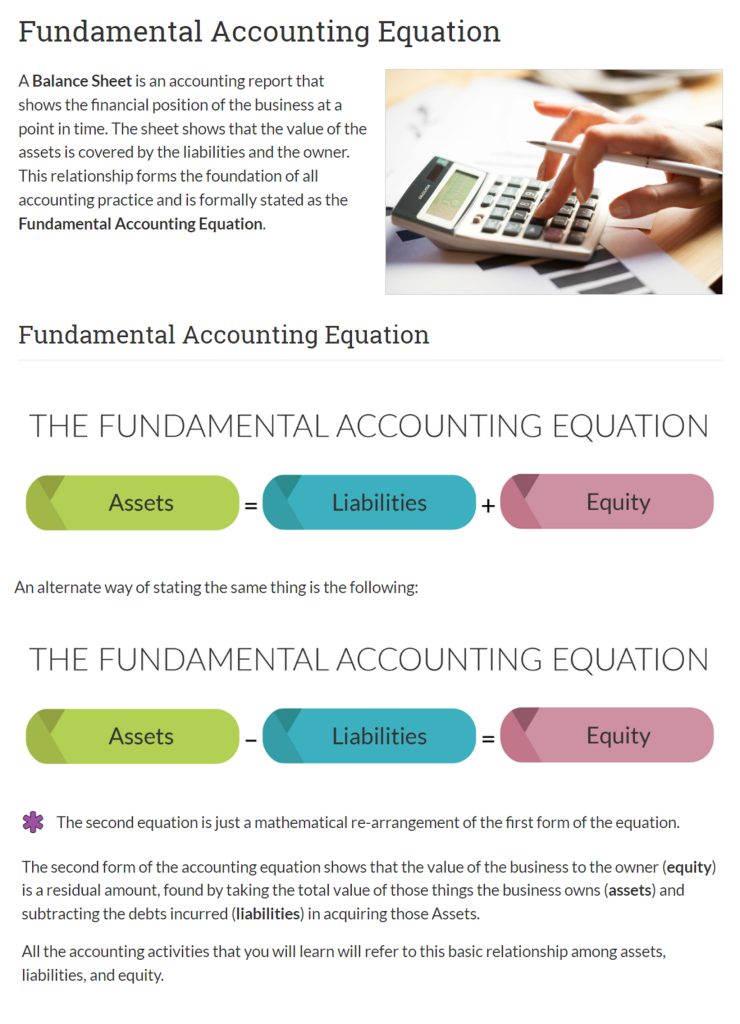
Understanding finances and knowing how to make, spend give, save, and track money are essential skills. In our world, we need money to survive. Money is required for so many things, from buying groceries to paying for a house with water and electricity. In business, money is just as important, and if we want to be wise then we need to learn about it! That said, as we learn about money, we must filter our knowledge through the lens of God’s Word.
Throughout this course, while learning about the fundamentals of accounting, we will also explore the themes of God will Provide, God Calls Us To Be Generous, and God Calls Us to Put Him First.
Course Highlights


Course Breakdown
This course is divided into three units, with a final assessment and exam at the end.
Unit 1 introduces students to various accounting operations and the effects of these operations on individuals and businesses. Students will investigate the three professional accounting designations, and describe the focus of each group. They will be introduced to the Generally Accepted Accounting Principles: a set of rules which govern the field of accounting. Finally, they will investigate the three main forms of business organization: sole proprietorship, partnership and corporation.
Unit 2 introduces students to the procedures and principles of the accounting cycle for a service business, merchandising business, and a sole proprietorship. Students will examine the accounting cycle which includes the collection, recording, and analysis of financial information in a fiscal period. For a merchandising business, students will learn that inventory and costs must be accurately measured and recorded. They will also learn the two key ways of handling inventory – periodic and perpetual inventory systems.
During Unit 3, students will be introduced to QuickBooks online and will use this online software system for small business to track company income, expenses, and inventory in an efficient manner. Students will use the Online Edition that allows sales tax to be automatically tracked.
The final project will have students simulate the accounting cycle for a service business. Students will also write a final exam. To learn more about this course, you can view the course outline on our website.




